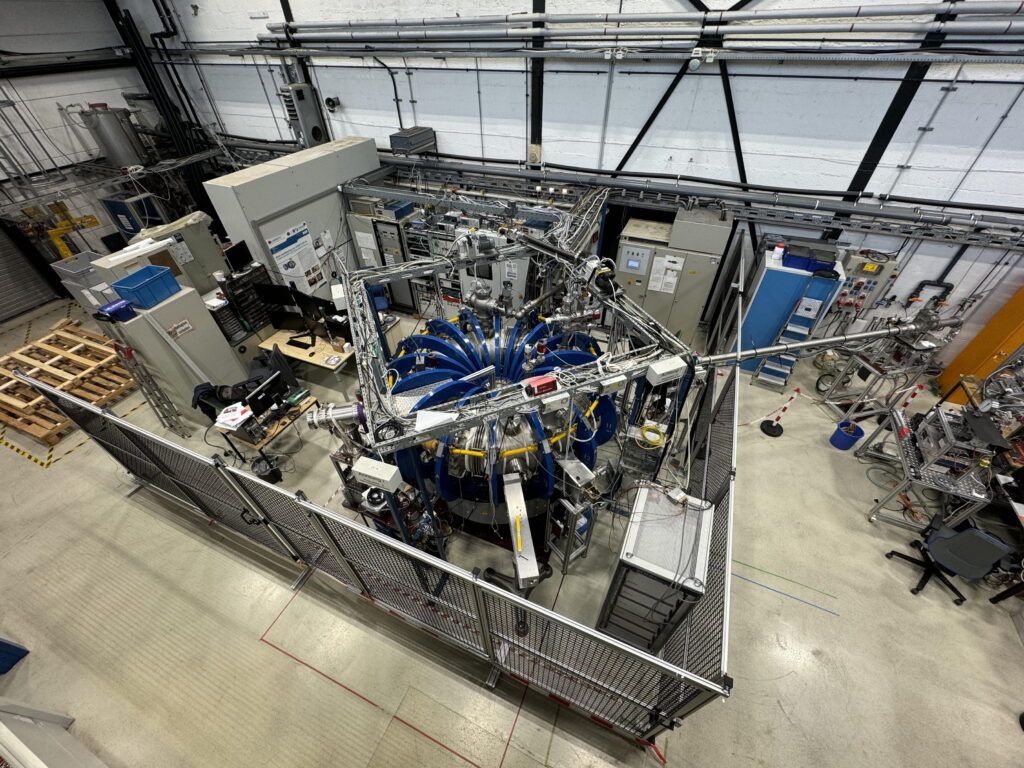
The TOMAS project focuses on the studies of wall conditioning, plasma production, and plasma-wall interaction, providing a flexible experimental environment to support corresponding activities on superconducting fusion devices such as W7-X, JT-60SA, and ITER.
The project is built around the TOMAS device, which is entirely operated by the Laboratory for Plasma Physics ERM/KMS in Forschungszentrum Jülich (FZJ), Germany, in close collaboration with the Institute of Energy and Climate Research (IEK-4) FZJ, Royal Institute of Technology (KTH), Sweden and Kharkov Institute of Physics and Technology (KIPT), Ukraine. The TOMAS project also receives extensive support from the Max Planck Institute for Plasma Physics, Germany, Ghent University, Belgium, and the ITER Organization.
TOMAS is a fully metallic fusion device with a major radius of 0.78 m and a minor radius of 0.26 m. The volume of the vessel is ~ 1.1 m3, and its inner surface has an area of ~ 8.5 m2, which can be baked up to 80 oC on average. The system of 16 toroidal magnetic field coils provides a magnetic field on an axis of up to 125 mT. The device has a Glow Discharge system (9 kW), Electron Cyclotron Resonance Heating system (2.45 GHz, 0.6 – 6 kW), and Ion Cyclotron Range-of-Frequency system (10-50 MHz, up to 6 kW) producing plasmas in density and temperature ranges of 1013 – 1017 m-3 and 5 – 150 eV, respectively.
The device is equipped with several diagnostics such as Langmuir probes, Time-of-Flight Neutral Particle Analyzer (ToF NPA), Residual Field Energy Analyzer (RFEA), Microwave Interferometer, Optical emission spectroscopy, Quadrupole Mass Spectrometers, video diagnostics including fast cameras, various pressure gauges. For plasma-wall interaction applications, the specially built sample load-lock system is used to expose various material samples in a free orientation and temperature range of up to 600 oC. Besides the current status, TOMAS is available for further upgrades and improvements to the existing components.
The TOMAS facility is also an excellent training ground for students and young researchers to obtain the necessary skills and experience in experimental physics and engineering. It provides opportunities for internships and master’s and PhD topics with a flexible operation under a broad range of conditions without time limits regarding the availability and access to the experiment.

Last Updated on 14-06-2024.